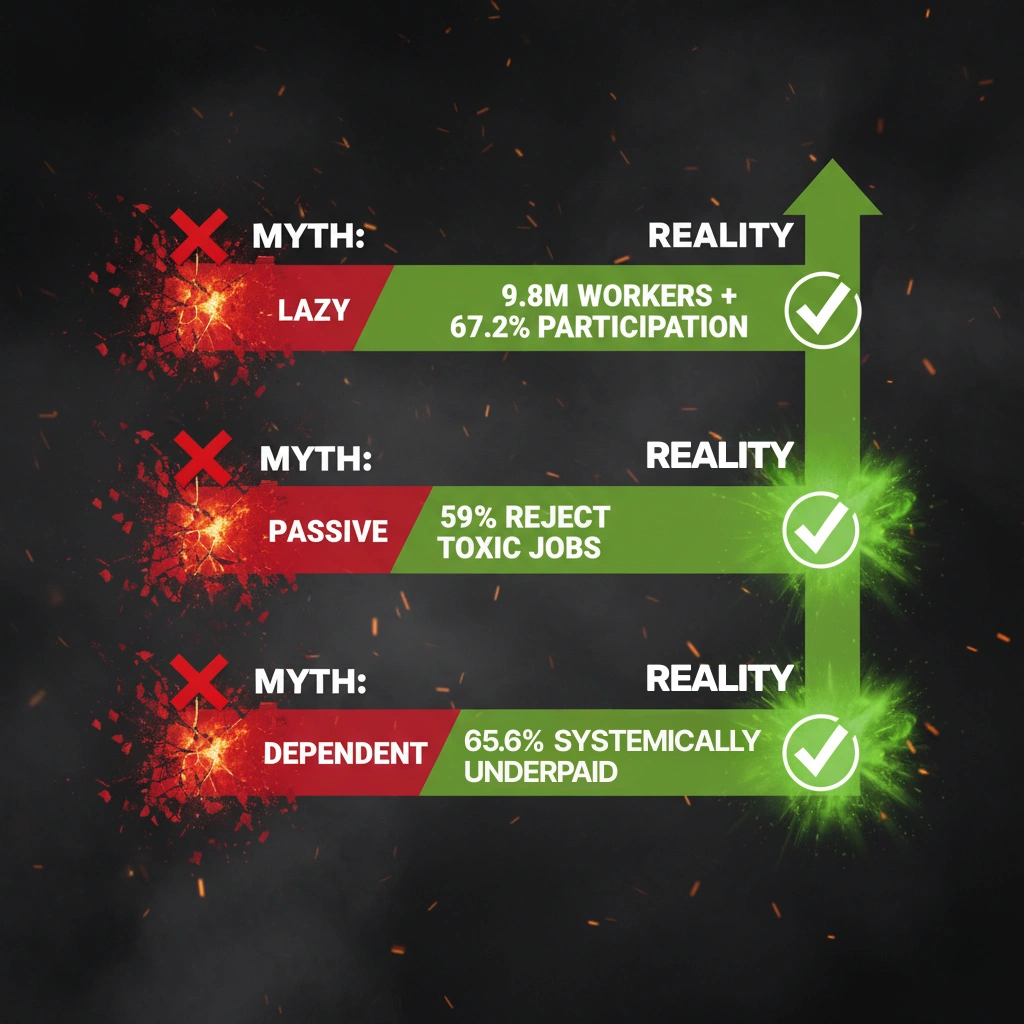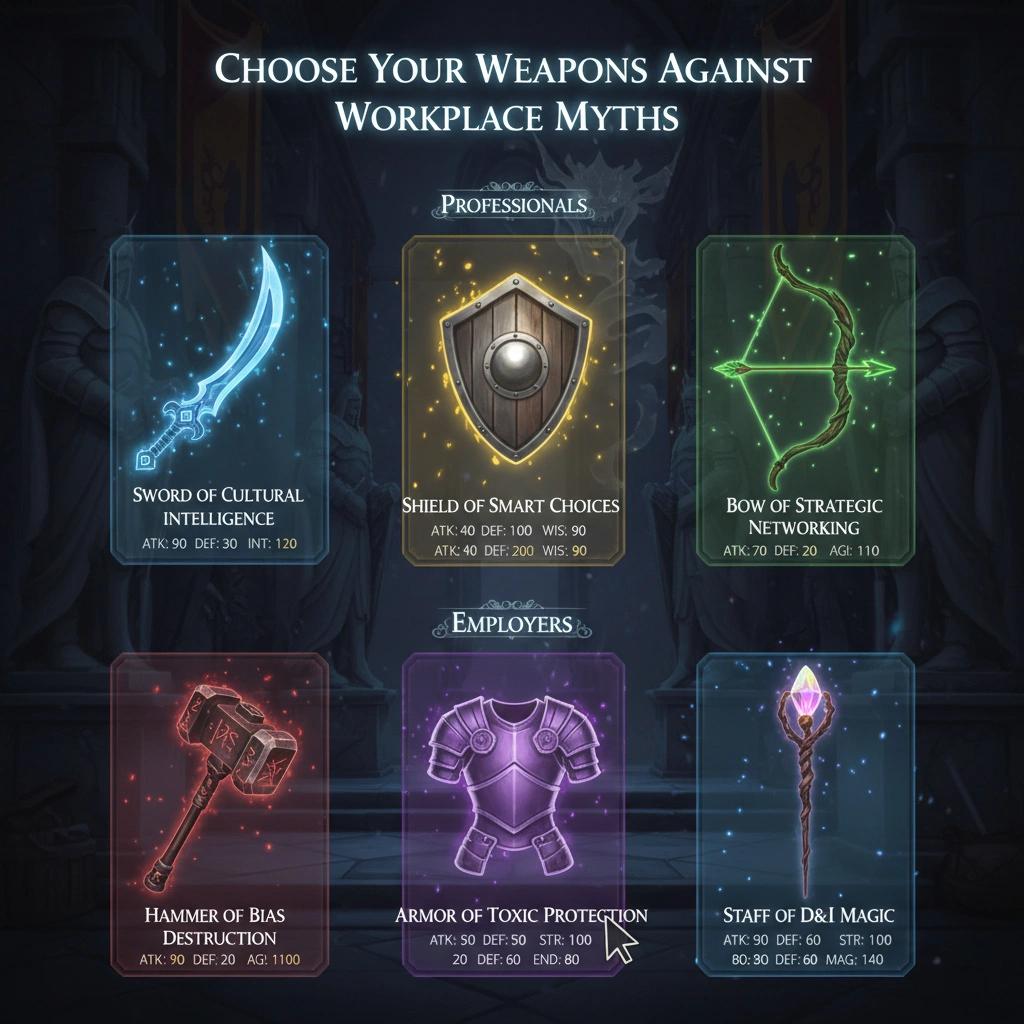We're Not Lazy, Just Anti-Toxic
Diterbitkan pada 28 Sep 2025
3 min baca

Masa untuk hancurkan stereotypes yang dah outdated.
Masa untuk bangkit dengan fakta.
Key Facts Upfront: What You Need to Know
Bumiputera workers = 9.8 million people
(67.2% labour participation)
59% of Malaysians quit toxic workplaces
Highest in Asia Pacific
65.6% of graduates earn <RM2,000
Due to structural issues, not work ethic
These numbers destroy decades of colonial-era stereotypes.
Data speaks louder than prejudice.
Breaking Down the Toxic Myths

Myth #1: “Malays are lazy”
Where this came from:
Colonial manipulation to justify economic exploitation
The reality:
Pre-colonization, Malay archipelago buzzing with:
- Maritime trade
- Ship-building
- Cross-ocean commerce
“Lazy” accusations appeared after colonial forces destroyed local economic systems.
Current proof:
9.8 million Bumiputera workers actively contributing to Malaysia’s economy.
Unemployment rate 3.2% - back to pre-pandemic levels.
Truth:
Refusing exploitative work conditions isn’t laziness.
It’s dignity.
Myth #2: “Malays lack ambition/too passive”
Where this came from:
Misunderstanding of cultural intelligence and Malaysian workplace values
The reality:
Malaysian culture scores high on:
- Collectivism
- Respect for authority
- Work-life balance
These aren’t weaknesses.
They’re advanced soft skills.
Current proof:
✓ Fozia Amanulla leading Boost Bank as CEO
✓ Muhammad Syahir Norhisham building CAE Perfume empire
✓ 59% actively quitting toxic environments (highest resistance rate in Asia Pacific)

Truth:
Strategic ambition aligned with values beats toxic hustle culture.
Myth #3: “Malays are comfort-seeking/depend on privileges”
Where this came from:
Ignoring structural economic problems
The reality:
The numbers don’t lie:
- 65.6% of graduates earn <RM2,000
- Housing prices “severely unaffordable”
- Skills mismatch is systemic
Current proof:
Gig economy participation isn’t comfort-seeking.
It’s entrepreneurial adaptation to broken systems.
Truth:
Smart professionals adapt to structural challenges through flexible work arrangements.
Action Steps: What You Can Do Today

For Young Professionals:
Reframe Your Strengths
✓ Present cultural values as competitive advantages
✓ Highlight team-building and stakeholder management skills
✓ Position work-life balance as professional requirement, not weakness
Choose Smart Employers
✓ Research companies with proven D&I policies
✓ Check leadership diversity in annual reports
✓ Ask about cultural intelligence training during interviews
Build Your Narrative
✓ Use specific examples of cultural strengths driving project success
✓ Articulate long-term career sustainability over short-term burnout
✓ Network with professionals who understand cultural intelligence
For Employers:
Eliminate Bias
✓ Implement cultural intelligence training for managers
✓ Review performance evaluation systems for unconscious bias
✓ Create multiple pathways for demonstrating excellence
Address Toxicity
✓ Monitor and act on employee satisfaction data
✓ Redesign value propositions for modern workforce expectations
✓ Invest in mental health and work-life balance support
Deep Dive Resources
Research Foundation:
Historical Analysis
📖 Syed Hussein Alatas: “The Myth of the Lazy Native”
Systematic analysis of colonial stereotype construction
Cultural Framework
📊 Hofstede Cultural Dimensions
Malaysia’s collectivism and power distance scores
Official Data
📈 DOSM Labour Force Statistics 2023-2024
Official employment data
Industry Reports:
Workplace Toxicity
📋 Randstad 2025: Malaysian workplace toxicity leading Asia Pacific
Skills Mismatch
📋 MOHE Graduate Employment Data: Skills mismatch and underemployment analysis
Best Practices
📋 PwC Malaysia Annual Reports: D&I implementation case studies
Success Stories:
Leadership Transitions
🏆 Digital banking leadership transitions in Malaysian fintech
Entrepreneurship Support
🏆 SME Corp TUBE program: Bumiputera youth entrepreneur development
Corporate Diversity
🏆 Petronas board diversity policy implementation
Cultural Intelligence Tools:
Assessment Frameworks
🔧 Malaysian workplace cultural assessment frameworks
Training Resources
🔧 Cross-cultural communication training resources
Research Studies
🔧 Budi culture in professional contexts research
The Bottom Line
Statistics don’t lie.
Colonial myths do.
When 9.8 million Bumiputera workers actively drive Malaysia’s economy, “lazy” becomes laughable.
When young professionals strategically choose better opportunities over toxic environments, “passive” becomes outdated.
When graduates adapt to structural challenges through entrepreneurial flexibility, “comfort-seeking” becomes irrelevant.
Progress happens when people refuse to accept narratives yang no longer serve anyone’s growth.
Data speaks.
Myths fall.
